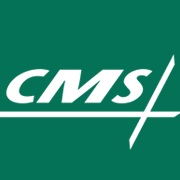CMS Healthcare Payment Strategies Cut Hospital Readmissions
The Health Care Innovation Awards project has brought benefits to patients as well as new ideas for healthcare payment strategies to CMS.

- The Centers for Medicare & Medicaid Services (CMS) Innovation Center was created in order to develop more revolutionary healthcare payment strategies that could reduce the cost of Medicare, Medicaid, and the CHIP programs. One of its initiatives, the Health Care Innovation Awards, was recently profiled in a CMS Blog.

The Health Care Innovation Awards project has brought benefits to patients as well as new ideas for healthcare payment strategies to CMS. For instance, Innovative Oncology Business Solutions, Inc. adopted a medical home approach that improved access to care by extending same-day appointments and weekend hours as well as improved patient engagement through disease management guidance.
There was greater patient satisfaction found for the increased office hours on the weekends. The results also show that all of this led to fewer emergency room visits and hospital readmissions for more than 2,100 patients.
CMS has also worked toward improving patient safety within the hospital environment, according to the CMS Blog. The Agency for Healthcare Research and Quality released data showing that hospitals across the nation have reduced preventable patient harm by 39 percent in 2015 as compared to 2010. This means that 2.1 million fewer patients were harmed during a hospitalization.
“I have been working in the field of quality improvement for 20 years, and I have never before seen results such as these,” CMS Acting Principal Deputy Administrator Patrick Conway wrote in the CMS Blog. “This work, though, is far from done, and it is imperative that we sustain and strengthen efforts to address patient safety problems, such as central line infections and hospital readmissions.”
“Today, we at CMS are excited to continue progress toward a safer health care system by releasing a Request for Proposal (RFP) for Hospital Improvement and Innovation Networks (HIINs).”
“The HIINs, which will be part of the Quality Improvement Organization (QIO) initiative, will continue the good work started by the Hospital Engagement Networks (HENs) under the Partnership for Patients initiative.”
“These organizations will tap into the deep experience, capabilities and impact of QIOs, hospital associations, hospital systems, and national hospital affinity organizations with extensive experience in hospital quality improvement. The HIINs will engage and support the nation’s hospitals, patients, and their caregivers in work to implement and spread well-tested, evidence-based best practices.”
This program will seek to reduce overall patient harm by 20 percent over the next three years. The policymakers are also looking to cut hospital readmissions within a 30-day timeframe by 12 percent.
CMS is also looking to expand the Diabetes Prevention Program for Medicare beneficiaries. This program allows Medicare beneficiaries at risk of developing the disease to attend weekly meetings where they are provided with tips and guidance on how to prevent diabetes. Additionally, monthly follow-up meetings are also encouraged in order to maintain healthy behaviors.
By expanding the Diabetes Prevention Program, it is predicted that Medicare spending will decrease since it will reduce the number of treatments and medications necessary to manage this disease.
More health payers and providers are also focusing their efforts on preventive medicine in order to reduce spending and improve patient health outcomes across the board. The Affordable Care Act has made preventive healthcare services much more accessible to the everyday patient, as it eliminated out-of-pocket costs for preventive screenings and immunizations.
The CMS Innovation Center is continually working to improve the quality of medical services as well as reduce Medicare spending by developing new healthcare payment strategies. For example, value-based care reimbursement has become a mainstay for the Medicare program through the MACRA legislation.
Value-based care and alternative healthcare payment strategies are meant to reach the Triple Aim of Healthcare: improved patient satisfaction, better health outcomes, and reduced costs.
Dig Deeper:
HHS Issues Medicare Coverage Expansion for Diabetes Prevention
CMS Releases Medicare Data for Quality-Based Metrics
